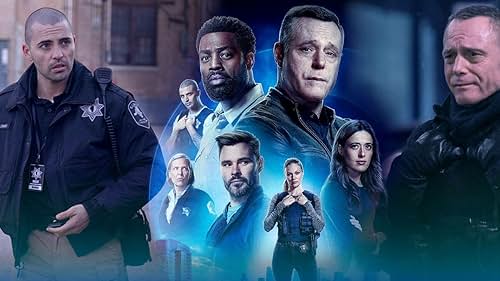
The Shifting Sands of District 21: Season 13’s Reckoning
The grit of Chicago, a city forged in steel and tempered by an unforgiving wind, finds its most visceral reflection in District 21’s Intelligence Unit. For twelve seasons, we have watched its members navigate the moral minefield of urban policing, their faces etched with the cumulative weight of hard choices and darker victories. But the showrunner’s recent tease of a Season 13 shake-up, promising new faces and fresh dynamics, signals more than just a casting update; it heralds a seismic shift, an inevitable reshaping of the very soul of Intelligence. This isn’t just new blood; it’s a transfusion that promises to re-oxygenate – or perhaps even redefine – the unit’s hardened heart.
Imagine the familiar bullpen, once a crucible of unspoken understanding, now subtly rearranged. The ghosts of departed colleagues linger in the empty spaces – a coffee mug left behind, a faded tack board where a case file once hung. Their absence is a tangible weight, a void that will echo with the unspoken lessons and the ingrained methodologies they left behind. When the showrunner speaks of a “shake-up,” it’s the visceral impact of these departures that first hits home. It’s the unsettling quiet where a quick quip or a weary glance once passed, the missing piece in a human puzzle that has for so long functioned as a formidable, if flawed, unit. This isn’t merely a cast change; it’s the breaking of a long-established rhythm, the dissolution of a deeply ingrained muscle memory that once guided their every move.
Into this newly unmoored landscape step the “new faces.” They are not simply replacements but harbingers of a different era. Picture a detective, perhaps younger, sharper, unburdened by the unit’s often morally ambiguous past. Their eyes, unclouded by years of compromising decisions, might glint with an idealistic zeal that could either refresh or infuriate Voight. Perhaps another brings a specialized skill – a digital forensics savant who sees patterns in data where the old guard saw only dead ends, their fingers dancing across keyboards while the veteran officers still prefer shoe leather and gut instinct. Or consider a more seasoned transfer, someone who arrives with their own scars, their own hardened code, potentially clashing with the established hierarchy or, conversely, finding a surprising kinship with the likes of Atwater or Burgess, offering an external perspective that had long been absent.
This influx isn’t just about introducing new characters; it’s the deliberate infusion of “fresh dynamics.” Envision a critical hostage situation unfolding. Voight, ever the pragmatist, might be poised to take a brutal shortcut. But now, a new detective, adhering strictly to procedure, might openly challenge him, not with defiance, but with a reasoned argument steeped in modern police ethics. The tension wouldn’t just be external – the ticking clock of the crisis – but internal, a clash of philosophies playing out in real-time. This dynamic promises a nuanced exploration of justice, forcing the unit to confront whether the “ends justify the means” approach still holds water in a rapidly evolving world.
Consider also the personal ripple effects. How does Kevin Atwater, a man who has consistently strived for the moral high ground within the unit, react to a new colleague who shares his convictions, or conversely, one who embodies the very systemic issues he fights against? How does Kim Burgess, now a seasoned detective and a mother, mentor a rookie who reminds her of her own ambitious, perhaps naive, beginnings? The showrunner’s tease hints at these intricate webs of relationships, where the new faces act as catalysts, forcing the remaining veterans to re-evaluate their positions, their loyalties, and their methods. The established camaraderie might face its sternest test, evolving from a comfortable familiarity into a more challenging, yet potentially richer, tapestry of interactions.
Ultimately, the Season 13 shake-up is a bold gamble, a showrunner’s masterstroke to prevent stagnation. Chicago P.D. has always prided itself on its raw authenticity and its unflinching look at the grey areas of law enforcement. By introducing new perspectives, new challenges, and new allegiances, the show is not simply changing its cast; it is renewing its narrative pulse. It’s an illustrative promise that the Intelligence Unit, much like the resilient city it protects, is prepared to evolve, to fracture and rebuild, emerging from the crucible of change not as a diminished echo of its former self, but as a revitalized force, ready to face the next chapter with fresh eyes and, hopefully, a renewed sense of purpose. The dust will settle, and when it does, District 21 will undoubtedly look different, but its fight for justice, in whatever form it now takes, will continue.
